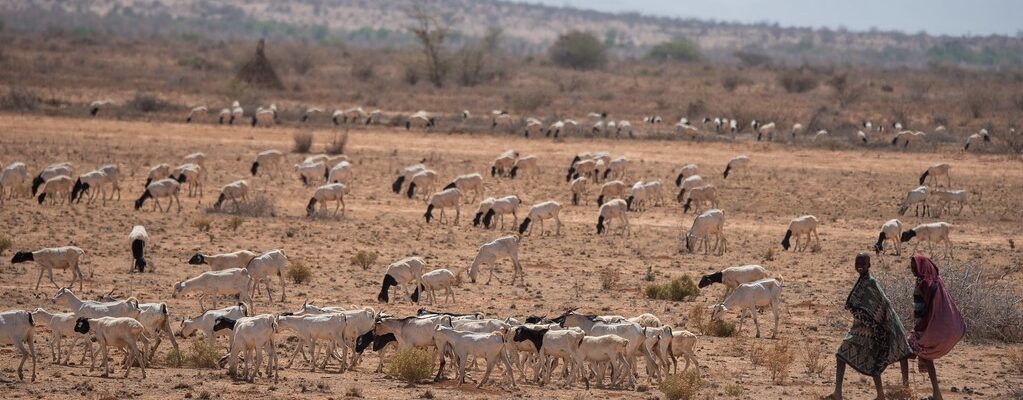Pooled funds work together to respond to drought-related needs
Ethiopia | 2021 | CBPF
Ethiopia, Desnaech and Borena. Ethiopia faces chronic and acute food insecurity due to droughts and increasingly erratic rains. Severe drought is, unfortunately, becoming more frequent, affecting farmers and pastoralists alike.
In late 2021, the Central Emergency Response Fund (CERF) and Ethiopia Humanitarian Fund (EHF) responded to the severe drought in Ethiopia’s Somali and Oromia region. Some US $7 million from both funds was allocated to respond, reaching about 900,000 people.
The CERF disbursed $5 million to FAO to safeguard livestock, protect the livelihoods of pastoral communities, and to UNICEF to ensure communities in the most vulnerable drought-affected areas could access safe water for themselves and their animals.
CERF funding enabled FAO to distribute drought-resistant maize, onion and tomato seeds to farmers like Erasho Lolima and her husband Meria in Desnaech Woreda, SNNP. These were distributed in time for the harvest, following cash assistance to get people through the lean season. “Before harvesting, the cash assistance provided during the lean season was essential,” said Erasho. Afterwards, added her husband, “The [good] harvest should [allow us] to establish seed and food stocks to sustain our food security for the coming months.”
Meanwhile, the EHF provided $2 million for health and nutrition interventions for children and vulnerable women, persons with disabilities, and the elderly. This allocation included national NGOs who were able to reach vulnerable groups in the most hard-to-reach locations.
One of these people was Tilahun, an 81-year-old pastoralist who had been struggling through the extreme drought in Borena. With no pasture to feed his 12 cattle, and no clean drinking water, his animals were dying and his children dropped out of school. Dehabo, a grandmother also in the Borena area, suffered a similar fate, losing all seven of her animals. Both Tilahun and Dehabo’s children dropped out of school as their families could no longer afford fees. With pooled fund support, water trucking projects and school feeding programs made it possible to keep children in school and cattle alive.
Working together, the two funds were able to reach more people affected by drought, allowing them to keep people and livestock healthy – and keep their livelihoods going beyond the lean season.
2021
More information on the Ethiopia Humanitarian Fund:
OCHA -POOLED FUNDS DATA HUB – By Country (unocha.org)
https://www.unocha.org/ethiopia/about-ehf
